Physics of Low Dimensional Systems
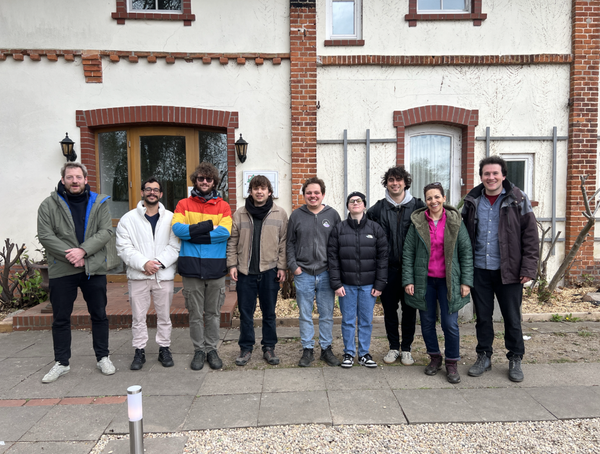

Welcome to our group website!
The main topic of our experimental research is the physics of low-dimensional solid-state systems. We focus on investigating 1D-systems (carbon nanotubes, confined carbyne), 2D-structures (graphene, transition-metal dichalcogenides), and their heterostructures by confocal and tip-enhanced Raman spectroscopy. We want to understand the physics that governs the behavior of these materials, achieve active control over their optical properties, and use them to explore advanced concepts like molecular optomechanics.
News & Highlights
- December 12, 2025: Today we say goodbye to Thomas. Thomas Fantin carried out his master’s thesis with us, designing, fabricating, and characterizing devices to study single-photon emission in strained WSe₂. During his time in Berlin, he investigated the influence of substrates on nanobubble formation at the interfaces of TMD stacks and developed a patterning technique to deterministically create arrays of nanostructures for strain engineering in monolayer TMDs. He will now return to Politecnico di Milano to complete his Master’s degree in Materials Engineering and Nanotechnology. It was a pleasure having you in the group—thank you, Thomas, for your excellent work!

- December 11, 2025: We have a farewell party for Thomas, who is going back to Milan. We will miss you, Thomas!
 |
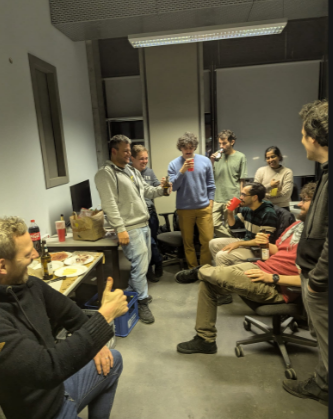 |
- December 5, 2025: For our Christmas party this year our former Master student Francesca Ciaglia flew all the way from Rome and cooked a fantastic carbonara for us! It was a pleasure to celebrate one more year with family and friends. Happy holidays!
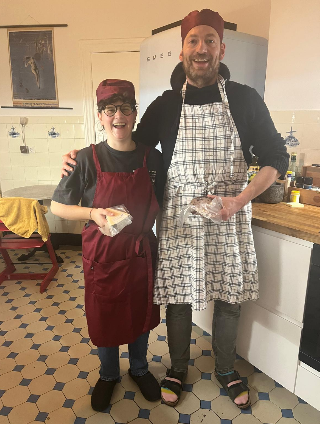 |
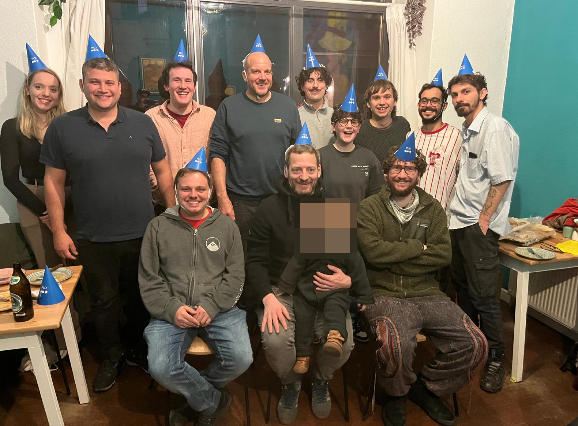 |
- December 1, 2025: Our friend Vítor Monken from FabNS visited us to help relocate our Porto Tip-Enhanced Spectroscopy system to our new lab at the Center for the Sciences of Materials Berlin (CSMB). During the visit, he also installed a new upgrade that enables Tip-Enhanced Raman Spectroscopy using a 532 nm laser, in addition to the existing 633 nm laser. This upgrade was made possible by the funding of CRC 1772 and the close development collaboration between our group and FabNS. We are very excited to begin the measurements with our newly expanded Porto system!
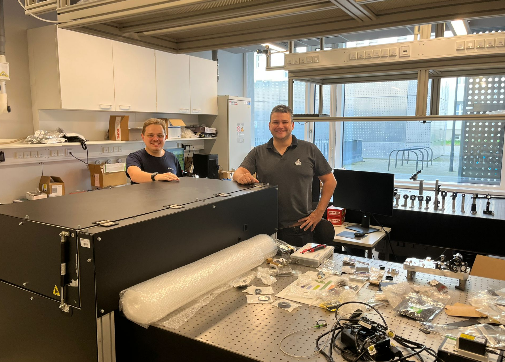
- November 15, 2025: Welcome, Philipp! Today we are happy to welcome Philipp Klar to the group. Philipp will join us to work on the commercialization of our porous gold PAuM membranes for surface-enhanced, bulk-suppressed Raman spectroscopy.
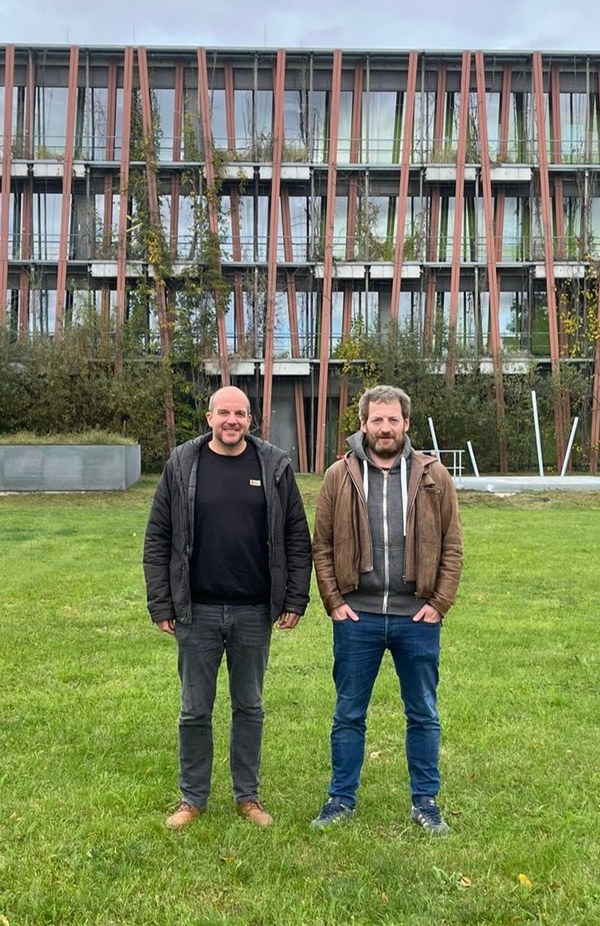
- October 14, 2025: New publication and Journal Cover. Strain Control of Valley Polarization Dynamics in a 2D Semiconductor via Exciton Hybridization has been published in ACS Nano Letters and its graphic art will feature as supplementary cover in the next journal issue.
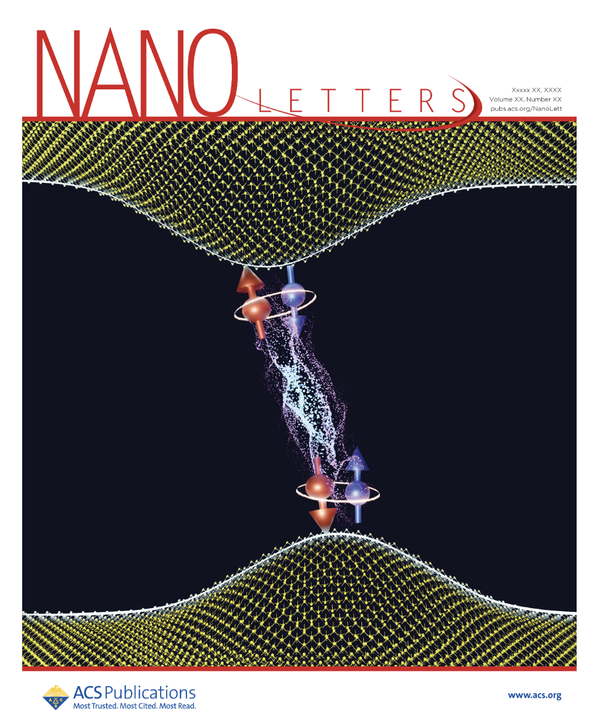
In this work, led by our colleagues in Kirill Bolotin’s group at Freie Universität Berlin, we explore the valley polarization and dynamics of our previously described strain-controlled hybrid excitons in suspended WSe₂ at cryogenic temperatures. This work is part of our broader effort in controlling quantum phenomena in 2D semiconductors through strain engineering, exploring several directions such as: exciton hybridization, valley fingerprinting, and pseudomagnetic effects

- October 10, 2025: Our friend and collaborator Prof. Ado Jorio from Universidade Federal de Minas Gerais, Brasil and the International Iberian Nanotechnology Laboratory in Portugal visits our lab. After listening to a very interesting talk with the title Updates on tip-enhanced Raman and quantum properties of Stokes-anti-Stokes photon pairs we had the chance to show him our lab (and our Porto TERS and TEPL system, which he pioneered) and engage in many enriching scientific discussions. We ended a great day with dinner and drinks.
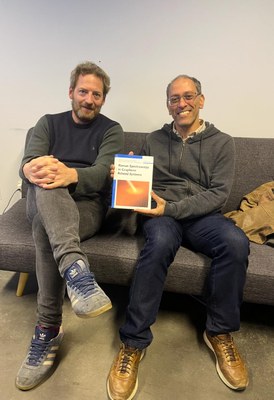
 |
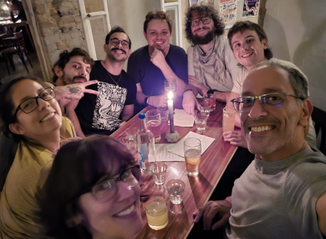 |
- October 6, 2025: We participated in the official kick-off meeting of CRC 1772, a collaborative research center funded by the German Research Foundation (DFG) and focused on the study of heterostructures formed from organic molecules and atomically thin two-dimensional (2D) materials. We are very excited to be on board with our subproject B02 — Nanoscale optical imaging and spectroscopy of mol2Dmat heterostructures and to collaborate closely with colleagues from Freie Universität Berlin, Technische Universität Berlin and Max-Planck-Institut für Struktur und Dynamik der Materie in Hamburg. Alongside the first internal council meeting, we enjoyed a talk by Prof. Ado Jorio from the Universidade Federal de Minas Gerais, Brazil, on Nano-Raman Spectroscopy in 2D (hetero)structures. We concluded the day by celebrating together the launch of what surely will be a highly fruitful scientific project.
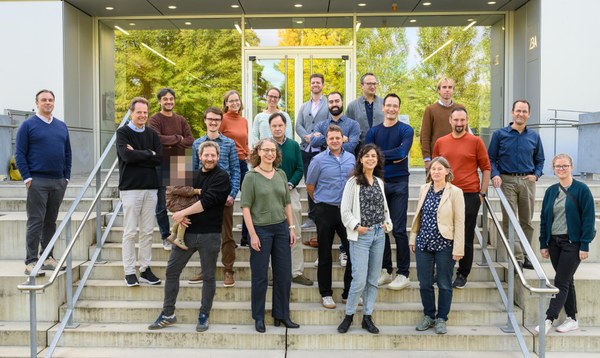
- October 2, 2025: Today we say goodbye to Dr. Shaili Sett, who has visited us for four weeks as a WINS Postdoctoral Fellow. Thank you, Shaili, for all the productive conversations. We are very excited about the collaborations we have started and we hope to welcome you back soon!

-
October 1, 2025: Dr. Shaili Sett, visiting us from the Indian Institute of Science in Bangalore as a WINS Postdoctoral Fellow, gives talk on Emergent phenomena in 2D materials at the WINS Fellow Forum 2025
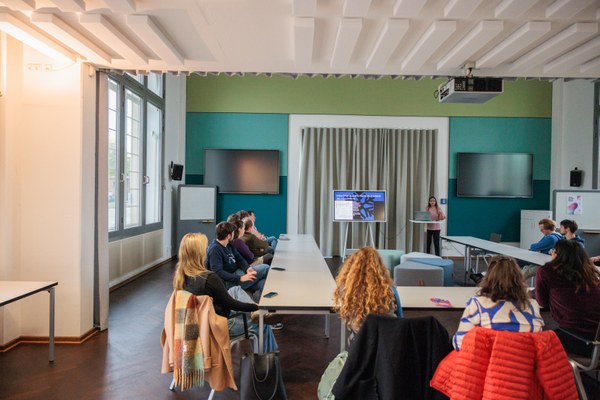 (Philipp Plum photography)
(Philipp Plum photography) - August 19, 2025: We have a picnic at the Treptower Park to celebrate the good weather after a rainy summer!
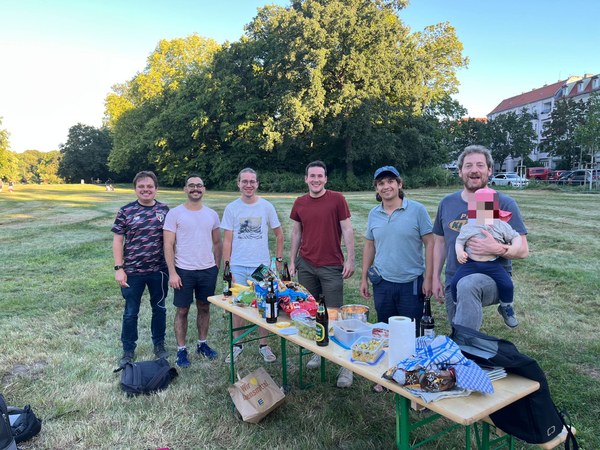
- June 4-6, 2025: Pietro participates at the 7th ETH-Raman workshop 2025 with a talk on Universal law for vibrational anharmonicity in carbyne-like materials. The organizing committee awarded his contribution with one of the Young Investigator Pitch Prizes. Congratulations!

- June 3, 2025: With Sebastian becoming a main organizer, the group joins the organization team of the International Winterschool on Electronic Properties of Novel Materials, which will celebrate its 38th edition February 28 until March 06, 2026 in Kirchberg/Tirol, Austria. We are very excited to work with the groups of Stephanie Reich, Janina Maultzsch, Andreas Hirsch and Christoph Stampfer to organize our favourite conference. See you in Kirchberg!
- June 2, 2025: New project funded. The German Research Foundation has approved the funding of a new CRC 1772 “Heterostructures of Molecules and Two-Dimensional Materials” with over ten million euros for approximately four years. The project is coordinated by Freie Universität Berlin, includes contributions from Humboldt-Universität zu Berlin including Profs. Stephan Hecht, Norbert Koch, Christoph Koch, Dr. Benedikt Haas and us; the Technische Universität Berlin, and the Max Planck Institute for the Structure and Dynamics of Matter in Hamburg. The center will combine physics and chemistry to study organic molecules embedded between atomically thin, two-dimensional materials. This design aims to combine the distinct advantages of both material classes: the chemical versatility of organic molecules and the unique physical properties of 2D materials. Within our subproject B02, we will use TERS and TEPL to characterize with nanometers resolution local changes in doping, strain and other quantities.
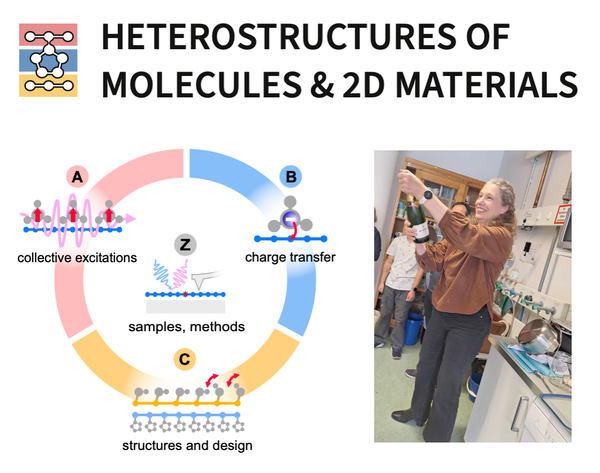
- May 27, 2025: Welcome Ashna! Today we welcome Ashna John in the group. Ashna is a student of the master of optical sciences at HU Berlin who will do her Master Thesis with us. Ashna will work on optimizing the performance and the applicability of our porous gold membranes for bulk-suppressed and surface-sensitive Raman spectroscopy
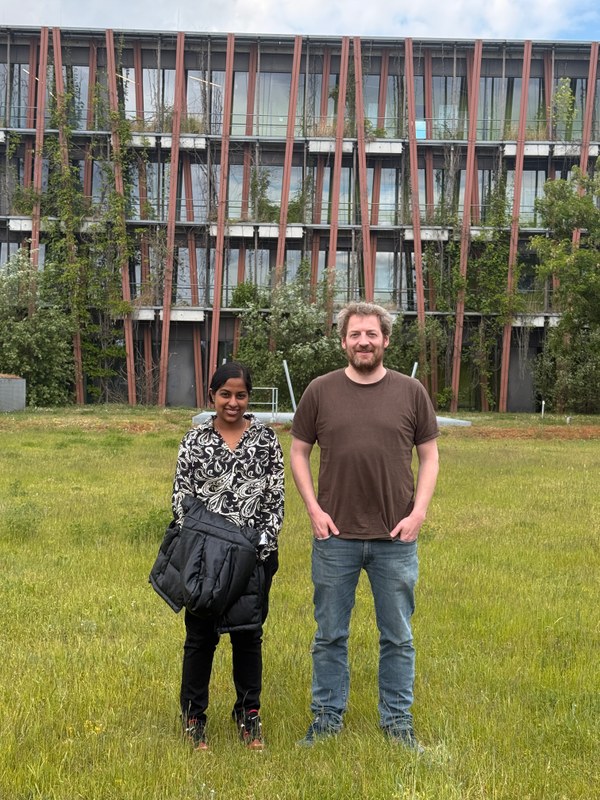
- May 23, 2025: Today we say goodbye to Francesca. Francesca Ciaglia conducted the second part of her Master's thesis with us studying linear carbon chains encapsulated in single-wall carbon nanotubes. The chains were produced at NanoLab of Politecnico di Milano and inserted into nanotubes of selected chirality. In Berlin, she did a thorough spectroscopic characterization using confocal Raman spectroscopy at different excitation wavelengths to investigate the vibrational response of these systems in confined environments. Now she will return to Politecnico di Milano to graduate in the Master in Matrials Engineering and nanotechnology. It was great to have you in the group and thank you for your work!
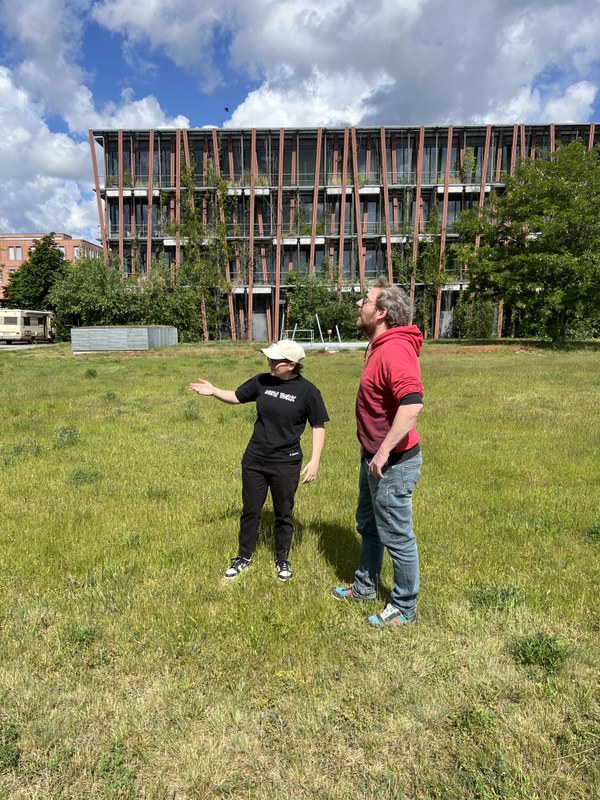
- May 21, 2025: Sebastian gives a NanoLab talk on how to get a Raman spectrum from surfaces & thin films in the Department of Energy at Politecnico di Milano
- May 20, 2025: We have a farewell picnic for Francesca, who is coming back to Milan. Thanks Francesca for the steady supply of amazing food during your stay with us!
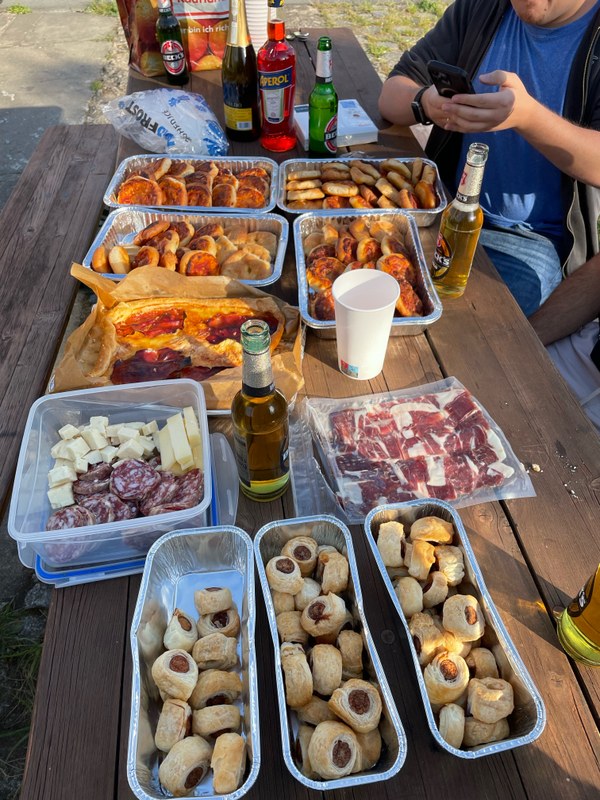
- May 10, 2025: New publication & Editors Highlight. Universal Anharmonicity in carbyne-like materials has been published in Nature Communications. As the editor highlights, we "use raman spectroscopy on confined carbyne to show that carbyne like materials follow a universal trend of increasing vibrational anharmonicity with decreasing bond length alteration"
Carbyne, a one-dimensional linear carbon chain, has been predicted to exhibit remarkable properties, but direct experimental validation ideal carbyne has remained elusive. Instead, we study structurally related carbyne-like materials like confined carbyne - linear chains of carbyne confined inside nanotubes or short atomic wires with different terminations—to identify fundamental behaviors that can be attributed to carbyne itself.
We found that vibrational anharmonicity—the deviation of vibrations from the ideal harmonic motion—is a universal feature across carbyne-like materials. By measuring the C-mode of isolated confined carbyne chains up to the third overtone via Raman spectroscopy, we observe a clear correlation between bond length and anharmonicity that holds across different carbyne-like materials.
Our work enables straightforward identification of carbyne-like materials using Raman spectroscopy, even in non-crystalline samples. It also provides a critical experimental benchmark to improve theoretical models of carbyne, which currently show large discrepancies. And lastly, the properties of carbyne may not be as exceptional as we think. Strong vibrational anharmonicity comes with less rigid bonds, strong electron-electron and strong electron-phonon coupling. These factors lower mechanical strength, charge and thermal conductivity compared to the record-breaking predictions that neglect anharmonicity.
We thank our collaborators from Universität Wien, Sun Yat-Sen University and Politecnico di Milano!
- April 30, 2025: Today we say goodbye to Gonca. Gonca Aras spent a very productive year with us during here postdoctoral fellowship funded by Tübitak. She developed growth and transfer methods for our Porous Gold Membranes (PAuM), greatly expanding the use cases of the technology for surface-sensitive Raman spectroscopy. Thank you for a great job!
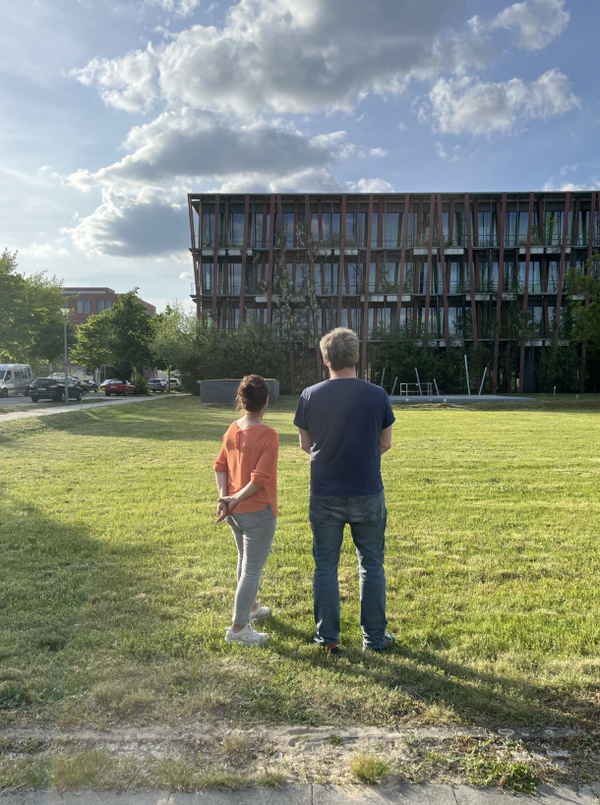
- April 29, 2025: The group has a farewell barbecue party in front of the building to say goodbye to Gonca before she returns to Turkey. We will miss you, Gonca!
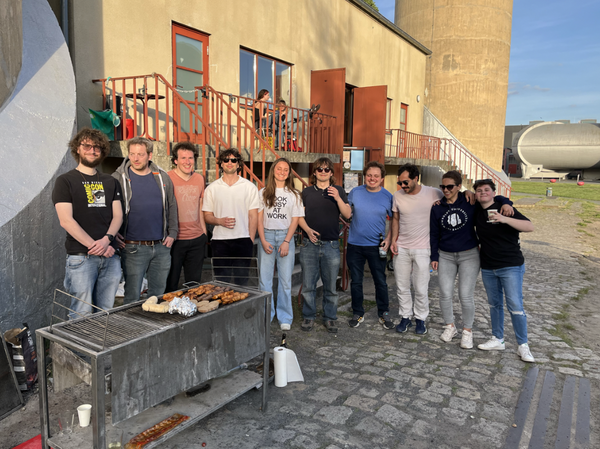
- April 15, 2025: Pietro was invited to speak at the 1st Workshop on Raman Spectroscopies for Material Science, held at Politecnico di Milano in collaboration with the Italian Society of Optics and Photonics (SIOF). In his talk, Pietro showcased the powerful role of Raman spectroscopy as a key tool for probing the fundamental properties of carbyne-like materials, spanning from carbon atomic wires to confined carbyne. His presentation highlighted recent advances from the group, in particular our latest findings on the anharmonicity in carbyne vibrational modes, emphasizing how Raman techniques are driving new discoveries in this emerging field.
- April 8 to April 11, 2025: We participated in a joint retreat with Dr. Sven Ramelow's Nonlinear Quantum Optics group in the Brandenburg countryside. We enjoyed a few days of bonding, cooking together, and planning the year ahead. The barbecue, karaoke, pub quiz and PowerPoint slam were a lot of fun!
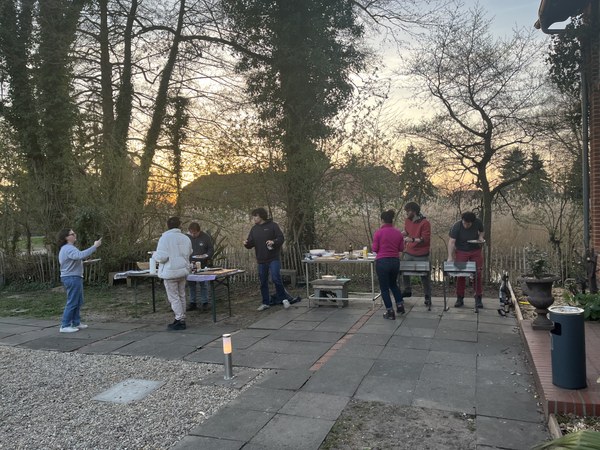
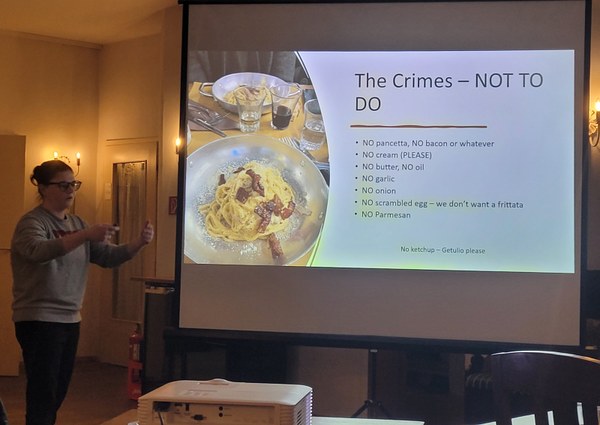
- March 17, 2025: Welcome Thomas! Thomas Fantin joins our group as a guest Master student from the Politecnico di Milano where he pursues a Master in Materials Engineering and Nanotechnology. In Berlin he will work on the nanofabrication and characterization of 2D devices for strain engineering and cryogenic spectroscopy.
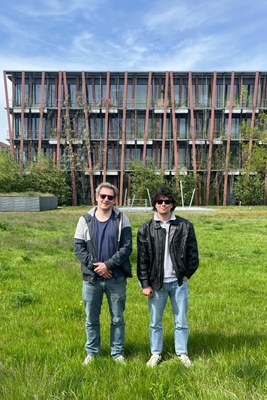
- March 8 to March 14, 2025: As in previous years, the group participates in the International Winterschool on Electronic Properties of Novel Materials (IWEPNM) in Kirchberg in Tirol, Austria. This year, we sent a large delegation from PLD—seven group members—to celebrate the 40th anniversary of the winterschool. Sebastian gave an invited talk on our recent work on anharmonicity and confinement effects in carbyne-like materials. Pietro, Rafael, Gonca, Pablo, Johannes and Gétulio contributed to the Winterschool's flagship lively poster sessions presenting their results on plasmonic membranes, carbyne chains, and tip-ehanced spectroscopy of 2D devices.
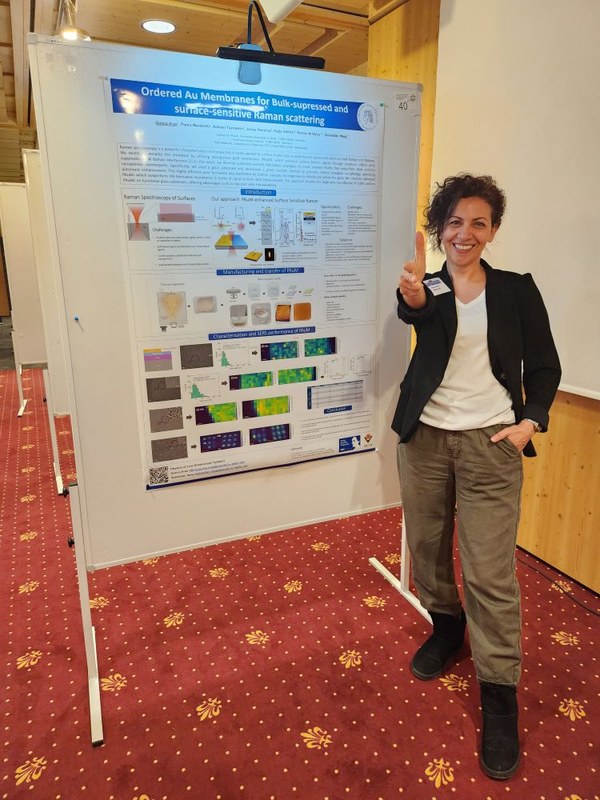
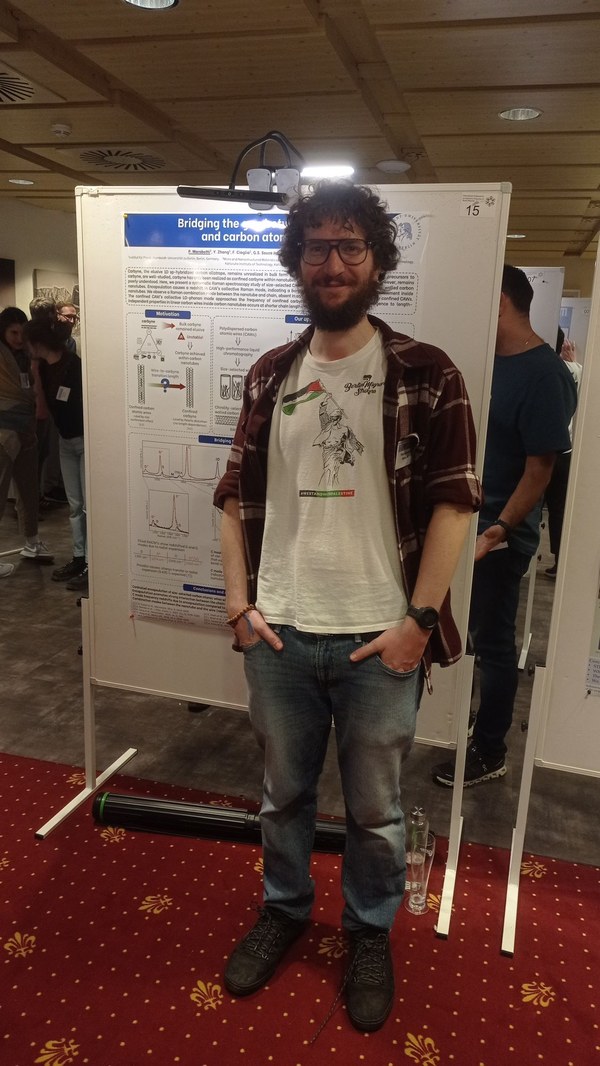
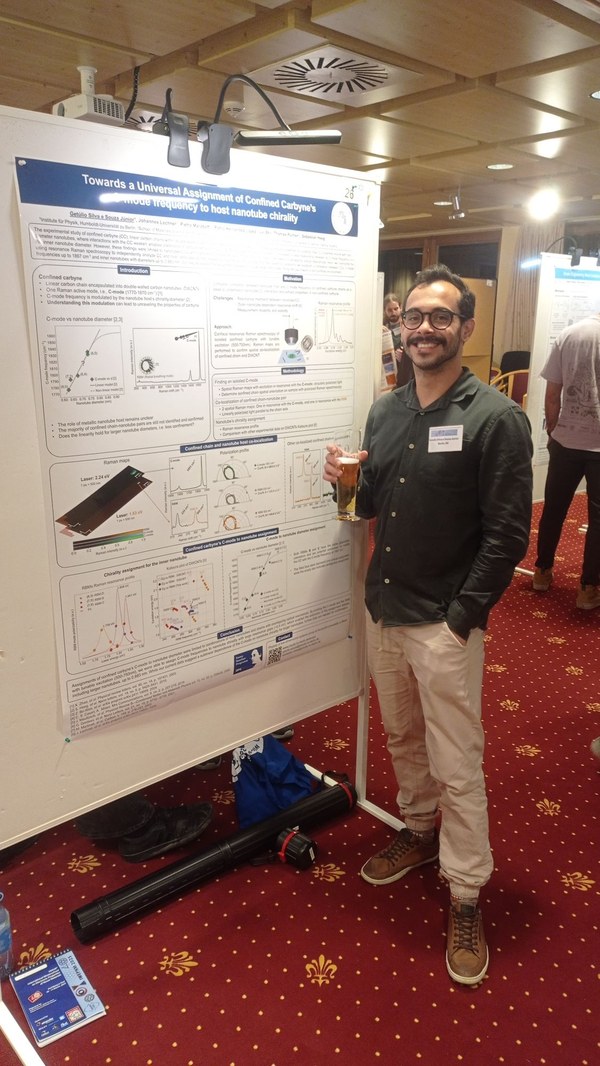
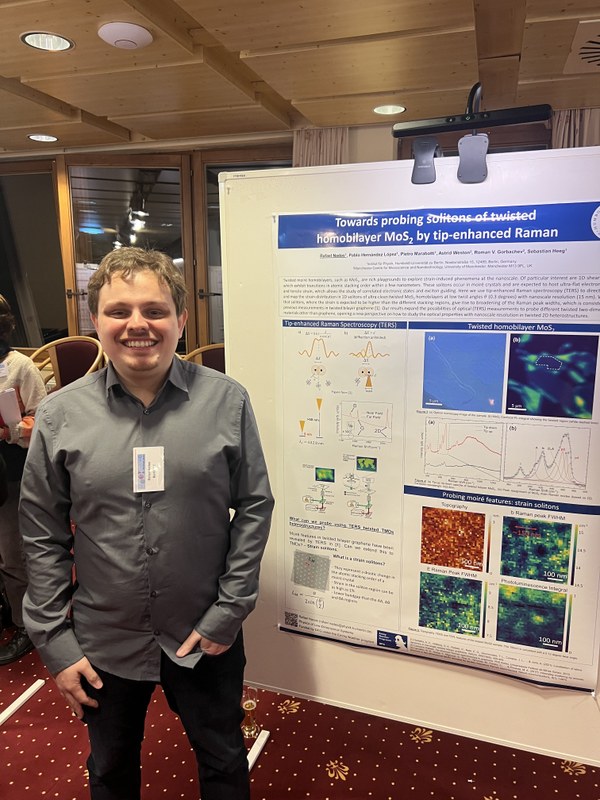
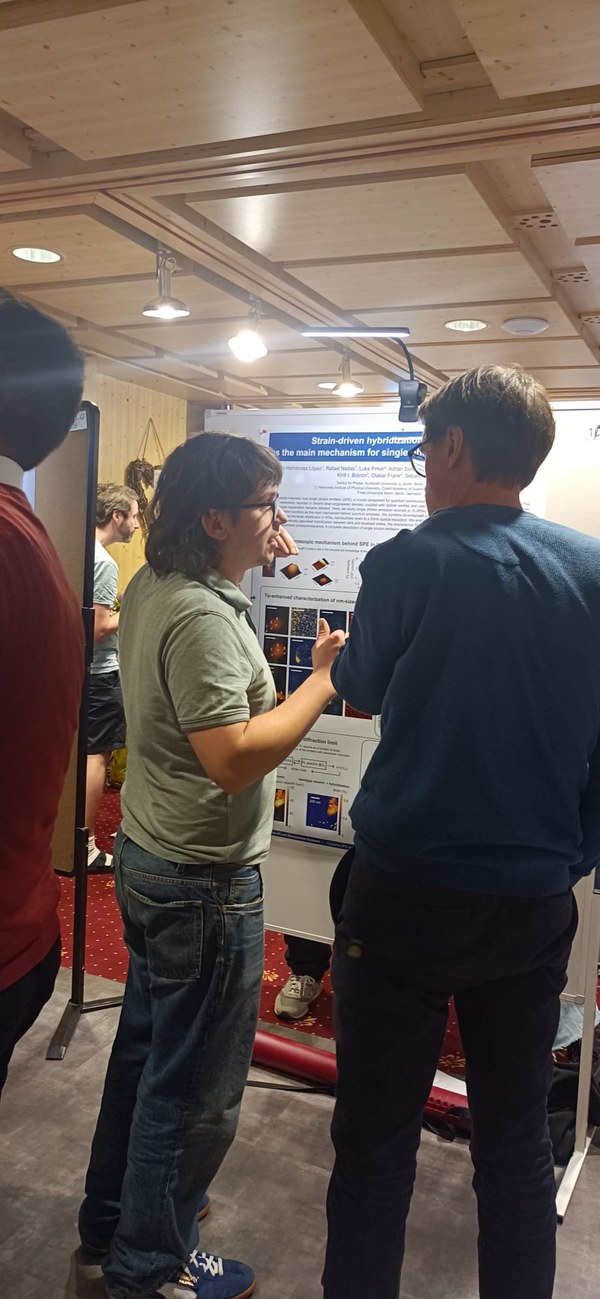
- February 16, 2025: New manuscript entitled Strain engineering of valley polarized hybrid excitons in a 2D semiconductor on ArXiv.
In this work, led by our colleagues in Kirill Bolotin’s group at Freie Universität Berlin, we explore the valley polarization and dynamics of our previously described strain-controlled hybrid excitons in suspended WSe₂ at cryogenic temperatures. By applying strain electrostatically, we bring inter- and intravalley excitons into resonance, promoting a hybridized state that inherits the strong light-coupling of bright intervalley excitons and the low depolarization rates of dark intervalley excitons. We demonstrate a threefold increase in the degree of circular polarization in the KK′-defect hybrid exciton compared to its constituent species, as well as a hundredfold slowdown in valley depolarization dynamics within the coherently coupled hybridization of KK-KQ excitons. We believe these findings show how strain-controlled hybridization can extend valleytronics to the rich valley texture of TMDs.
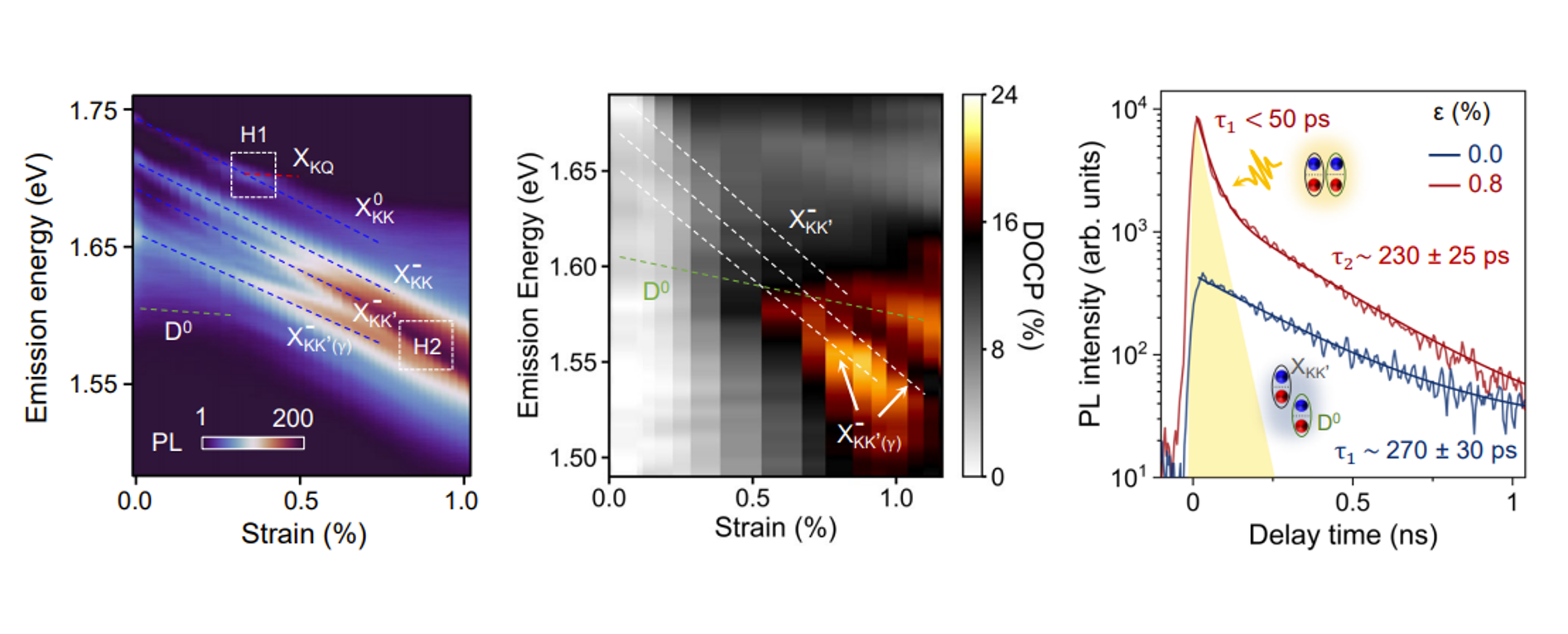
- December 11, 2024: We celebrate our Christmas dinner with former colleagues, friends and family. Happy holidays!
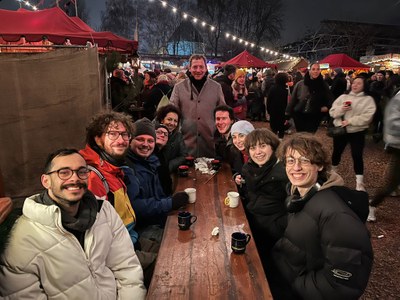
- November 20, 2024: Welcome Francescal! Francesca Ciaglia joins our group as a guest Master student from the group of Prof. Carlo Casari at Politecnico di Milano where she pursues a Master in Materials Engineering and Nanotechnology. In Berlin she will conduct the second part of her Master's thesis on Synthesis and investigation of linear carbon chains encapsulated in single wall carbon nanotubes

- November 19, 2024: We go on a "mystery" group event, which turns out to be a visit to the local circus. It was great fun and now we have a group mascot, a pony called Steve.
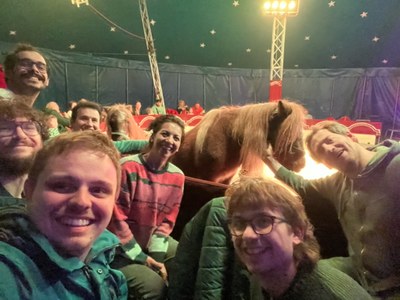
- November 4 to November 15, 2024: Francisco from Kurt-Schwitters-Schule in Berlin does a two weeks internship with us. During his stay with us Francisco got to experience how it is to work in experimental research at a public institution, learn about two dimensional materials and even attend an inspiring talk by Nobel laurate Prof. Alain Aspect. A great experience for everyone!
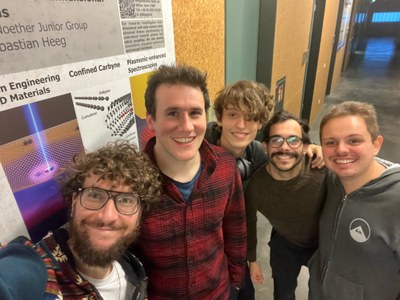 |
 |
- November 12, 2024: Our youngest group member visits our labs for the first time to get to know everyone and inspect the setups.
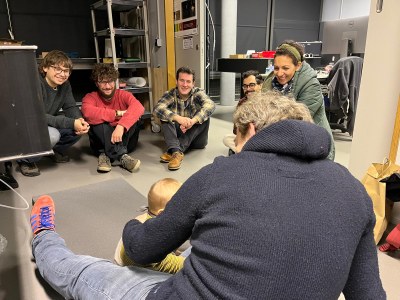
- November 11, 2024: We participate in the Adlershofer Forchungsforum 2024 with two posters on the Anharmonicity in higher order Raman modes of confined carbyne and Bulk-suppressed and surface-sensitive Raman scattering by transferable plasmonic membranes.
- October 18, 2024: New manuscript entitled Universal Vibrational Anharmonicity in Carbyne-like Materials on ArXiv.
Using Raman spectroscopy, we investigate the vibrational overtones of confined carbyne and uncover a large degree of anharmonicity. By comparing these results with carbon atomic wires, another carbyne-like material, we discover a universal relationship between anharmonicity and the molecular geometry. This unifying connection between these two materials brings us closer to and improves our understanding of ideal carbyne, sought after for decades, and enables to conclude that carbyne itself is also highly anharmonic. This finding has profound implications, including for the challenging modelling of carbyne and similar systems, which we hope our work helps refine.
We thank our collaborators from Universität Wien, Sun Yat-Sen University and Politecnico di Milano!
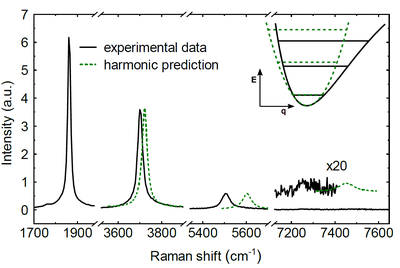
- October 13, 2024: Welcome Rafael! Dr. Rafael Nadas joins us as a Postdoctoral researcher. He obtained his PhD at the Universidade Federal de Minas Gerais for his work on Tip-Enhanced Raman and Photoluminescence Spectroscopy in Two-dimensional Systems. He will be the main pilot of our Porto, the TERS system that he developed as a member of the FabNS team back in Brazil.
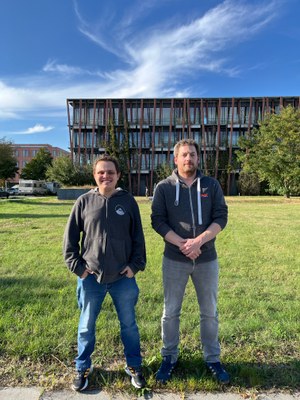
- September 12, 2024: Pablo gives the talk Strain tuning of optical properties in 2D semiconductors and optical readout of strain in thin films at the Exploring stress and strain in thin films and semiconductor materials Workshop of the Nanoinnovation 2024 conference at the Sapienza University of Rome.
- August 30, 2024: New publication Strain fingerprinting of exciton valley character in 2D semiconductors has been published in Nature Communications. Our friends from Prof. Kirill Bolotin's group at the Freie Universität Berlin lead this work where our electrostatic straining technique is used to identify the valley character of excitons and make momentum-indirect excitons visible in suspended TMDs.
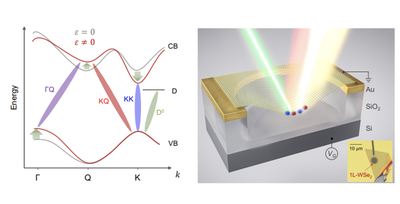
- July 28 to July 29, 2024: Pietro represents the group at the CHARISMA Raman School 2024 with the talk Challenges and prospects in bulk-suppressed, surface-sensitive Raman spoectroscopy and at the XXVIII International Conference on Raman Spectroscopy ICORS 2024 with the talk Phonon anharmonicity in confined carbyne probed by Raman spectroscopy
- July 22, 2024: New publication Advanced 1D heterostructures based on nanotube templates and molecules published as a review in Chemical Society Reviews. This very comprehensive review discusses all aspects of nanotubes as a template for molecular systems including confined carbyne. This review originated in a scientific meeting in Paris in 2018 and almost all participants made a contribution. We are happy that it finally got out!
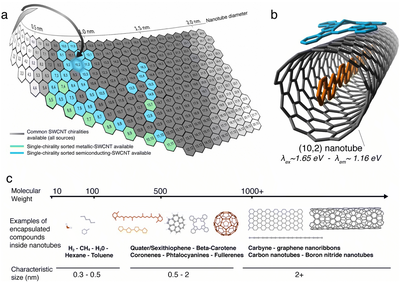
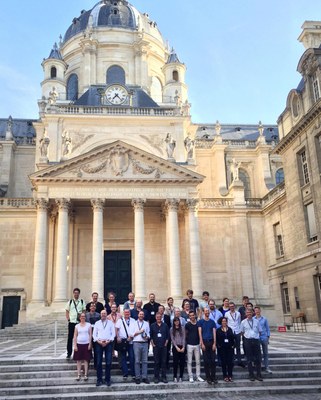
- July 18, 2024: Pietro wins the poster award of the Light Connections conference in Berlin organized by the Friday Light Talks team and sponsored by Berlin University Alliance with his poster "Bulk-suppressed and surface-sensitive Raman scattering by transferable plasmonic membranes". Congratulations!
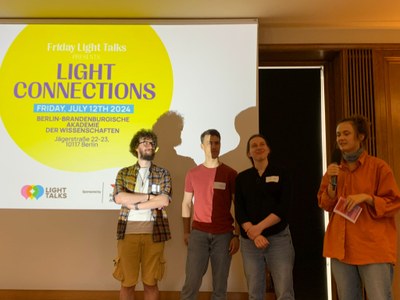
- June 19, 2024: New publication Bulk-suppressed and surface-sensitive Raman scattering by transferable plasmonic membranes with irregular slot-shaped nanopores has been published in Nature Communications. In this collaboration with ETH Zurich, Le Mans Université and the Leibniz Institut für Kristallzüchtung (IKZ) we use nanoporous Au membranes for bulk-suppressed and surface-sensitive Raman scattering, improving the surface-to-bulk Raman signal ratio by three orders of magnitude.
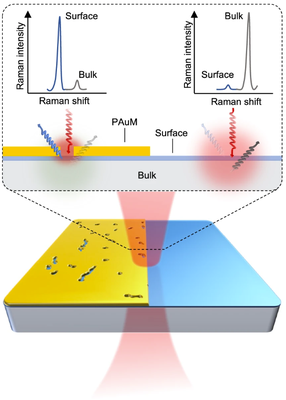
Read the news coverage of our paper by ETZ Zürich, Adlershof Wissenschafts- und Technologiepark Berlin and Humboldt Innovation.
- June 18, 2024: Getúlio defends his Master's thesis on Resonance Raman spectroscopy of individual carbon chains encapsulated in DWCNTs. He will stay now in the group as a PhD student. Congratulations!
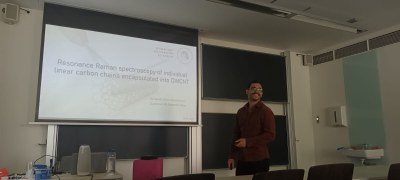
- May 3, 2024: Welcome Gonca! Dr. Gonca Aras joins us as a Postdoctoral researcher. She was recently awarded a grant by The Scientific and Technological Research Council of Türkiye to work with us in the Fabrication of Ordered Nonporous Gold Membranes for Usage in Surface-sensitive Raman Spectroscopy. Gonca obtained her PhD in Nanophotonics in the Atatürk University.
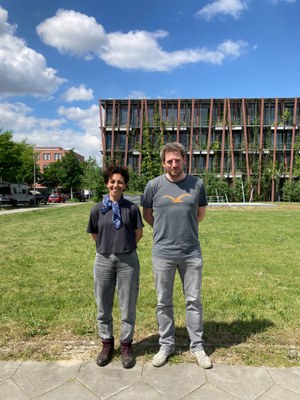
- March 17 to March 22, 2024: We take part in the DPG Frühjahrstagung 2024 in the campus of the Technische Universität zu Berlin. Pietro, Johannes and Pablo contribute to the Condensed Matter section of the 87th Spring Meeting of the German Physics Society with talks about surface-sensitive plasmonic membranes, higher order Raman modes of confined carbyne and strain engineering of 2D semiconductors.
- March 16, 2024: Our friend Rafael Battistella Nadas, PhD candidate at the Universidade de Minas Gerais, Belo Horizonte, Brazil and member of the team of FabNS visits our lab.
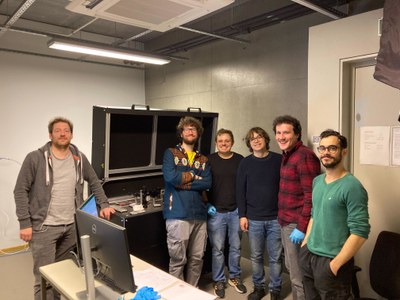
- March 9 to March 15, 2024: We participate in the 36th International Winterschool on Electronic Properties of Novel Materials at Kirchberg in Tirol, Austria. The excellent talks, lively poster sessions and miniworkshops in Kirchberg give us the chance to chat with our colleagues, engage in enriching scientific discussions and advance in our international collaborations.
- January 29, 2024: Official inauguration of our lab after the installation of the Porto system. We celebrated with friends and colleagues and toasted to the exciting physics to come.
- January 20 to January 28, 2024: The FabNS installation team visits our lab to set up our new Porto Tip-enhanced Raman Spectroscopy system. During the installation and training we had the chance to meet and learn from Cassiano, Vitor and Mário.
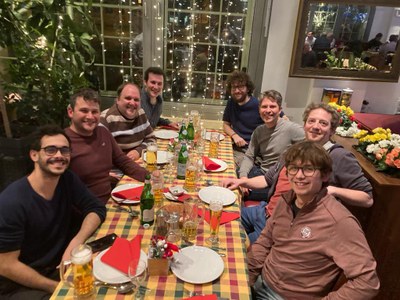
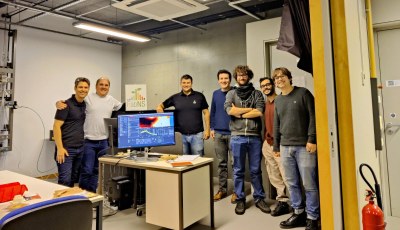
- January 6, 2024: PLD in the media. Our acquisition of the Porto TERS system from the Brazilian startup FabNS received considerable media coverage in Brazil in the last weeks. Our colleagues from FabNS were first interviewed for Jornal da Band, a Brazilian TV newscast, when they shipped our new Porto system to Germany. Sebastian was then interviewed for a similar news clip for Jornal Nacional in TV Glovo, the second largest TV network in the world. Our PLD-FabNS partnership was highlighted by the Brazilian embassy in Germany as an example of German-Brazilian scientific and technological cooperation. News coverage of the first Porto shipment also included printed journals as O Tempo or Diário do Comércio.
